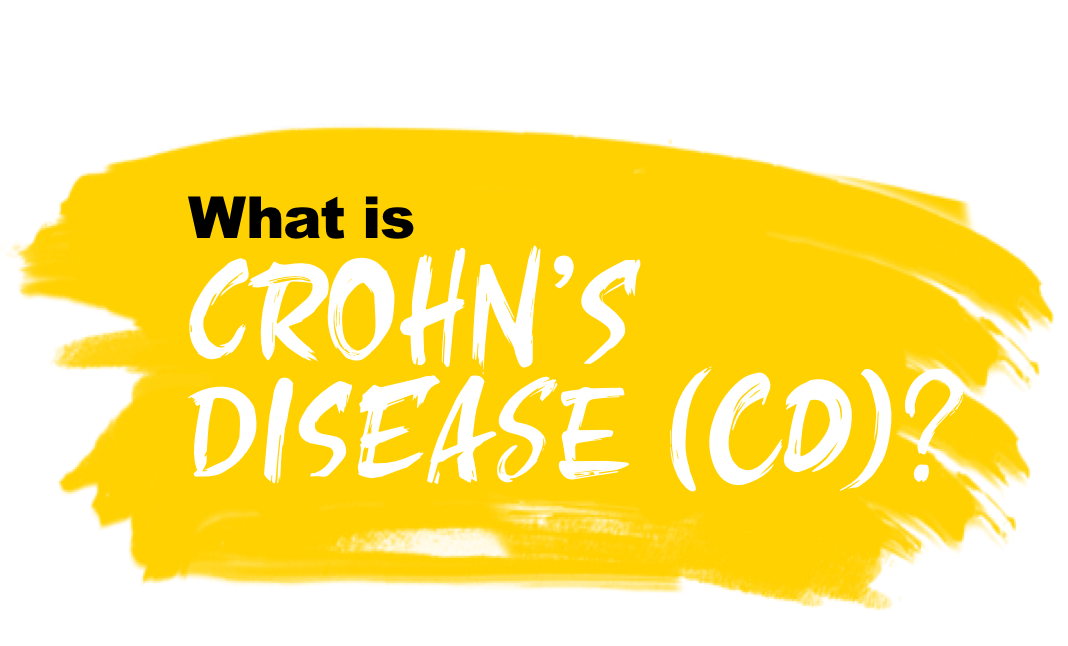
What is Crohns Disease (CD)?
Crohn’s disease is a chronic (or long-term) condition that causes swelling, thickening, and inflammation in the gastrointestinal (GI) tract, also known as the digestive system, and is part of a larger group of illnesses called inflammatory bowel diseases (IBD).
Which part of the GI tract can be impacted by Crohn’s disease?
Inflammation due to Crohn’s disease can affect any part of the GI tract, but it is most likely to be found at the end of the small intestine, which is one of the ways it is different from other inflammatory diseases like ulcerative colitis that affect the large intestine (colon and rectum).
Symptoms and Signs of Crohn’s disease
Everyone experiences Crohn’s disease differently. Symptoms can range from mild to severe and vary depending on the person and the area(s) of the GI tract affected. And because Crohn’s disease is a progressive condition, it is important to understand that symptoms may change or even get worse over time and lead to further complications if inadequately treated.
Some common Crohn’s disease symptoms include:
Abdominal pain (tummy/puku area)
Frequent bathroom trips (bowel urgency)
Persistent diarrhoea
Blood and mucus in stools
Fatigue
Unintended weight loss
What is the cause of Crohn’s disease?
Though the exact causes of Crohn’s disease are not known, a few contributing factors have been identified, including a person’s immune system, genetics, and environmental factors (for example, smoking and a person’s diet).